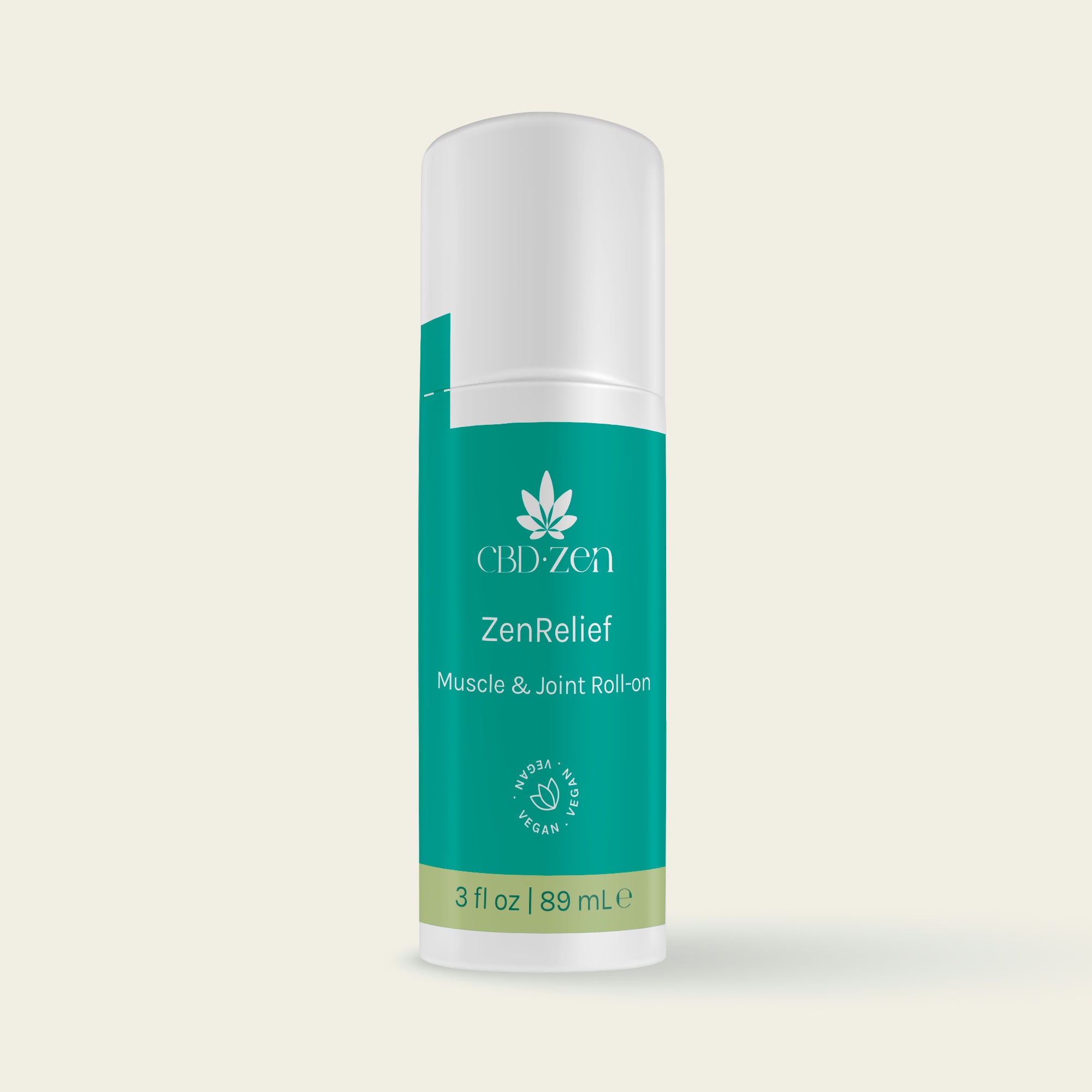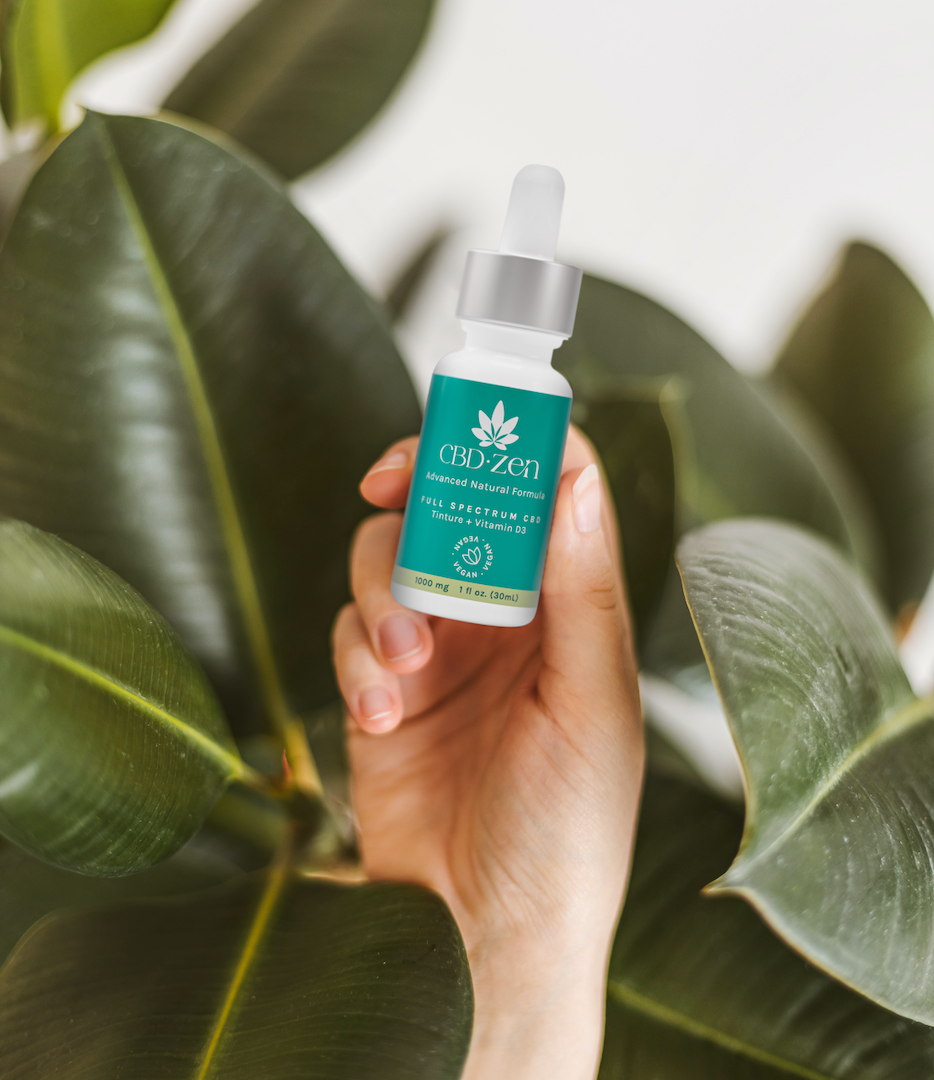CBD Myths and Truths: An Informed Journey to Wellbeing

You've probably been hearing about CBD and its fabulous natural properties for a couple of years. You have probably also heard some myths and information that make you doubt whether it is safe to consume. CBD has emerged as a phenomenon that arouses curiosity, offers hope and raises many doubts because it is a compound derived from cannabis.
However, on this path to wellness, it is crucial to separate unfounded myths from research-backed truths to understand what it really offers, how it works, and how it can help you. In this article we want to put the magnifying glass on the most common myths and truths surrounding CBD, to provide you with a clear and objective guide if you want to explore its natural properties.
Demystifying CBD: Separating Fact from Fiction
Let's start by understanding what CBD is and how it acts in our body.
What is CBD?
The full name of CBD is cannabidiol. It is a cannabinoid from the Cannabis sativa plant . CBD is mainly extracted from the hemp plant (HEMP), a variety of Cannabis sativa that has very low levels of THC and high levels of CBD.
And what are cannabinoids? Well, they are those chemical substances capable of linking with the cannabinoid receptors of the human body and brain through the endocannabinoid system.
Did you know that we have an endocannabinoid system?
Yes, as well as the nervous system and the cardiovascular system, we have an Endocannabinoid system that functions as an intercellular communicator, it is a neurotransmission system present and involved in vital physiological processes.
The Endocannabinoid System (ECS) is responsible for regulating essential functions such as respiratory rate, glucose levels, body temperature, respiratory rate, appetite, pain sensation, mood, stress and even immune function. . CBD has become famous in recent years because it interacts with our system, binding to receptors and activating them.
Why have I never heard of ECS? Surely because it was discovered very recently, specifically during the 90s, through the study of Phytocannabinoids such as THC and CBD.
Myth 1: "CBD will make you feel 'high'"
Cannabis is often associated with psychoactive effects, but it is essential to understand that CBD, unlike THC, does not produce that characteristic "high" effect. Numerous scientific studies support the claim that CBD is non-psychoactive, meaning it does not alter perception or affect cognitive functions.
To understand the difference between CBD and THC, it is important to know that both are cannabinoids. They are two of the more than 150 cannabinoids that have been discovered in cannabis. But THC (9 Delta-Tetrahydrocannabinol) is the cannabinoid responsible for the “high” of marijuana and is the main psychoactive compound responsible for the euphoric effects associated with its consumption.
CBD, on the other hand, has a very low concentration of THC, generally below 0.3%, making it NOT psychoactive.
Myth 2: "CBD is addictive"
Unlike substances such as nicotine or alcohol, studies have shown that CBD does not trigger the formation of compulsive habits. It is crucial to understand that addiction is often related to a substance's ability to cause dependence, and CBD, in this sense, has been shown to be safe and non-addictive.
Myth 3: "All CBD products are the same"
The quality of CBD varies greatly depending on its source and processing. Opting for high-quality products is essential to experience the real benefits of CBD. By choosing products derived from responsibly grown hemp plants and processed to rigorous standards, you are guaranteed to achieve the desired effects. Our CBD Zen is made from hemp plants grown on USDA certified farms in the United States in Wisconsin.
Myth 4: “It is illegal to consume CBD”
The legal status of CBD depends on the country where we are located. Since 2020, the United Nations Commission on Narcotic Drugs reclassified cannabis, following recommendations from the World Health Organization, and voted in favor of removing cannabis from the list of prohibited substances, as long as its consumption is for medicinal purposes. .
Because hemp (the plant from which CBD is obtained) tends to have a lower THC content, the United States Congress legalized it in 2018, as long as it has 0.3% or less THC.
The Truths of CBD: Benefits Supported by Science
Truth 1: "Relieves stress and anxiety"
Stress and anxiety are common companions in modern life, and CBD has proven to be a valuable ally in their management. Research suggests that CBD may positively influence brain receptors related to stress and anxiety, offering a natural approach to alleviating these conditions . Numerous testimonials support CBD's ability to promote calm and emotional balance.
Truth 2: "Anti-inflammatory properties of CBD"
Chronic inflammation is linked to various health conditions, and CBD has emerged as a promising anti-inflammatory agent. Studies indicate that CBD can modulate the body's inflammatory responses , offering a natural approach to addressing problems such as arthritis, and is recommended for recovery after exercise.
Truth 3: "Promotes healthy sleep"
Restful sleep is essential for health, and CBD has been shown to positively influence sleep patterns. Research suggests that CBD may help reduce nighttime anxiety and improve sleep quality, providing a natural option for those seeking a more restful night's sleep.

Extensive research is currently being done on CBD. In fact, researchers are conducting nearly 200 clinical trials involving CBD, examining its effectiveness in treating post-traumatic stress disorder, cancer, schizophrenia, cognitive impairment, ADHD, Parkinson's disease, and other conditions.
CBD and Feminine Wellbeing
Hormonal factors and CBD
Hormonal fluctuations are a reality for many women at different stages of life. CBD has shown promise in hormonal regulation, offering possible relief for symptoms associated with the menstrual cycle and symptoms associated with menopause . Consciously integrating CBD throughout the month can help maintain a more stable hormonal balance.
CBD and female skin care
Skin is a reflection of our internal health, and CBD has gained popularity in skin care. Its anti-inflammatory and antioxidant properties can contribute to healthier, more radiant skin. Products like CBD creams and oils are gaining ground as natural skin care options.
Empowered and informed about CBD
On the journey to wellness, distinguishing CBD myths from research-backed truths is essential. For women looking for a natural alternative to improve their quality of life, CBD offers promising ground.
We always recommend consulting your doctor before using our products. It is important to know how it can interact with other medications, especially if you are taking another treatment for a chronic condition.
By demystifying misconceptions and highlighting scientific truths, we want to provide you with informed and personalized guidance. At the end of the day, knowledge is the key to making conscious decisions about our own well-being, and CBD presents itself as an option worth exploring in the search for balance and health.
Sources consulted
Cannabidiol (Cbd) - Uses, Side Effects, and More
https://www.webmd.com/vitamins/ai/ingredientmono-1439/cannabidiol-cbd
DOES CBD REALLY DO ANYTHING? The Doctor Explains CBD Oil and Cannabidiol
https://youtu.be/3GZa9X0-XQc?feature=shared
A Simple Guide to the Endocannabinoid System
https://www.healthline.com/health/endocannabinoid-system#thc
Differences between THC and CBD
https://soferabogados.com/differences-entre-thc-y-cbd/
Here Are 5 Harmful Things CBD Articles Get Wrong




Agradezco me indiquen la cantidad diaria que debo ingerir de las gotas CBD y por cuánto tiempo se recomienda.
Tengo la misma duda de la persona q comento … como se usa … se toma las gotitas o se unta en la piel ??
Por cuanto tiempo es recomendable tomar El producto y como toamarlo? Existe alguna estadistica o investigacion que hayan hecho en pacientes con condicion de insomnio ?
Sería bueno que expliquen cómo se usa o se debe tomar el producto. Gracias.
Leave a comment